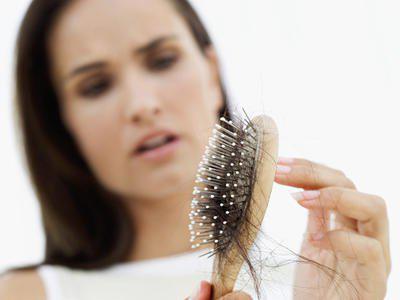Protein is important for several bodily functions and a deficiency can lead to many complications. Protein deficiency is more common than you might think. In fact, a study has found that over 1 billion people around the world are protein deficient. It is also found that children in South Asia and Central Africa do not get enough protein on a daily basis. When you are getting too little protein, you will start to notice several health problems. There will be signs you are suffering from a protein deficiency. Do not ignore those signs and take necessary measures to fix the issue.
How Much Protein to Take Daily
Most people do not realize the importance of getting an adequate amount of protein. Not getting enough protein would make your health and body composition to suffer. Experts believe that you should be getting no less than 0.8 grams of protein for each kilogram of body weight. In other words, you should get 0.36 grams of protein for each pound of body weight.
It means that the average sedentary man should be getting at least 56 grams of protein each day. On the other hand, the average sedentary woman should aim for at least 46 grams of protein per day. Interestingly, you need this much of protein to prevent a protein deficiency but you need much more than this to ensure optimal health. How much protein you really need depends a lot on your age, activity levels, physical goals, muscle mass, and your current state of health.
Signs You Are Suffering from a Protein Deficiency
Since protein is the building block of your skin, muscles, enzymes, and hormones, a deficiency can lead to all sorts of problems. While it is true that most foods provide you with some protein, which lowers your risk of developing a severe protein deficiency, it is still possible to not get enough and experience several signs and symptoms.
1. Food Cravings

If you always feel hungry and crave food and snacks all the time, it might be due to your high carbs and low protein diet. Many people think that they are eating a lot so they are not at the risk of developing a protein deficiency. The truth is that you might just be taking high-calorie food that may not have enough protein in comparison to its calorie count.
It also reduces your appetite, which keeps you from overheating and loading up on calories. As compared to carbs and fat, protein is more satiating. It is also found the getting enough protein would reduce the temptation for late night snacking – it also helps reduce obsessive thoughts about food up to 60%. Therefore, if you do not seem to understand why you always feel hungry even though you are eating enough, the answer might be in your protein intake.
2. Weight Gain
Eating protein not only helps you feel fuller but it also helps in many other ways to promote weight loss. For instance, your body takes time to digest protein, which in turn helps boost your metabolic rate. In fact, some studies have found that getting 30% of your calories from protein may help boost your metabolism by up to 80 calories per day. A protein deficiency would slow down your metabolic rate and make it difficult to burn additional calories, which over time will lead to weight gain.
3. Loss of Muscle Mass

Your muscles store protein, which is why one of many signs you are suffering from a protein deficiency is muscle weakness. You may also experience muscle pain and an overall loss of muscle mass. A study has found that joint pain and loss of muscle mass is a common sign of protein deficiency in elderly people. Increasing your intake of protein might help promote muscle growth and reduce joint pain as well.
4. Nail and Skin Problems
You are likely to develop skin and nail problems when you are deficient in protein. Your nails may become too weak and brittle when your protein intake is low. There will also be some brownish spots and white bands on your nails suggesting that you need to include protein-rich food in your diet. Similarly, your skin may also suffer due to a protein deficiency. Protein is responsible for cell regeneration, and a deficiency would make it difficult for your body to produce new cells to replace dead ones. Over time, it will make your skin become flaky, dry, and cracked.
5. Hair Loss

Just like skin and nails, a low-protein diet will also affect the health of your hair. Your hair is made of a protein called keratin, which means that a deficiency can lead to hair loss. Your hair may also fade in color and become very thin. When your protein intake is low, your body starts using whatever is available for more important bodily functions than growing and protein hair. If you have recently started losing hair quickly, you may want to look closer at your diet and add more protein to it.
6. Fatty Liver
One of the most common signs you are suffering from a protein deficiency is fatty liver. When not treated in a timely manner, it can lead to liver scarring, inflammation, and potential liver failure. You are likely to develop this condition if you are on a low-protein diet and drink alcohol as well.
7. Bone Fractures
You will be at an increased risk of bone fractures when your intake of protein is very low. A protein deficiency may lead to a weakening of the bone, and weaker bones are more susceptible to injuries and fractures. With inadequate protein in the body, it becomes difficult to absorb protein. Protein is also essential for bone metabolism, which is why its deficiency can cause serious musculoskeletal problems.
8. Sleep Deprivation

Do you find it difficult to sleep at night? Sleep deprivation may also be one of many signs you are suffering from a protein deficiency. Your body produces an amino acid called tryptophan, which is responsible for making you feel sleepy at night. Without enough protein, your body cannot produce this amino acid, which in turn can cause sleep deprivation.
9. Brain Fog
Getting enough protein daily is important for a healthy brain function. A protein deficiency may cause problems like poor memory, lack of motivation, and trouble with learning new things. You may also experience brain fog because protein is essential for the production of neurotransmitters such as epinephrine, dopamine, and serotonin.